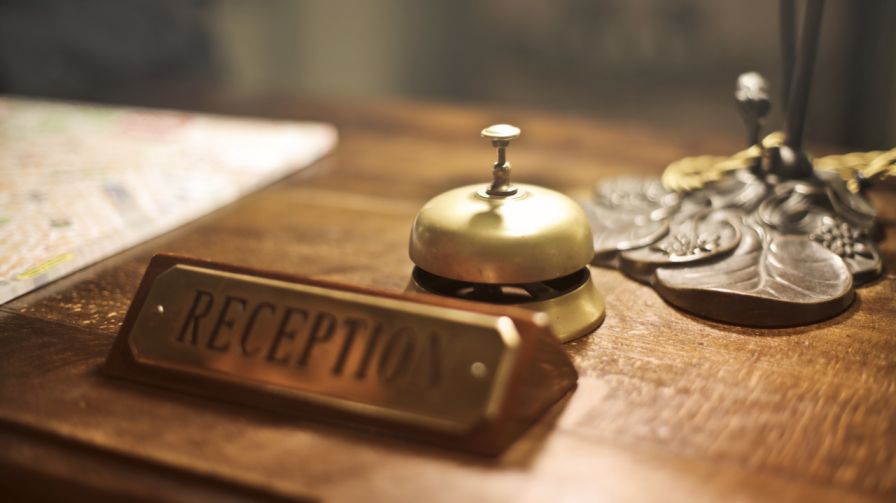This is a very confusing situation when you are on a trio and haven’t booked any hotel any advance. Then “Can you just walk into a hotel and get a room?” It seems like intimidating but you have nothing to do. And sometimes it is very normal.
Here’s your answer: You can walk into a hotel and get a room, but availability and prices can vary depending on several factors.
In this article, we will explore the ins and outs of checking into a hotel and getting a room. We’ll cover topics like the best times to do it, how to negotiate rates, and what to expect during the process.
Whether you are an experienced traveler or a new hotel guest, this article will provide you with valuable information and tips to ensure a smooth and successful experience.
Key points:
- The availability may vary depending on the time of the day, season, and geographic location.
- It is easier to get a room in a hotel when one walks in during off-peak hours or in hotels that register many guests frequently.
- Hotels may offer special promotions or upgrade to a higher room class to sell the rooms that are still available, but these options are usually available for guests who are ready to be more flexible.
- Finally, it is advisable to have other accommodation alternatives in case the targeted hotel is fully booked or cannot host you.

Factors Affecting Room Availability
- Location and Safety: Make sure the hotel is located in a secure area and within proximity to tourist destinations, transport terminals, and other facilities.
- Room Type and Availability: It is also important to see if the hotel has the type of room you require (single, double, suite, etc. ) and if it is available.
- Price and Payment: Make sure you know the total price of the room, including taxes and additional fees, and see what forms of payment are allowed. Ask if there are any other expenses.
- Amenities and Services: Check for basic services like Internet, AC, and breakfast. Other features such as a pool, gym, or even a restaurant or café should also be taken into consideration.
- Customer Reviews and Policies: Briefly scroll through the most recent customer reviews posted on the internet and familiarize yourself with the hotel’s check-in/check-out policies and cancellation policy, as well as any special rules.
Pros and Cons of Walking In
Advantages of Spontaneity
- Flexibility: You can change your plans on a whim.
- Discounts: Potential to snag a lower rate.
- No Commitments: You’re not locked into a non-refundable booking.
Potential Drawbacks
- Availability Issues: Risk of no rooms being available.
- Higher Rates: Last-minute bookings can sometimes be more expensive.
- Limited Choice: You may not get the type of room or amenities you prefer.
How to Successfully Walk into a Hotel
Research and Reviews
Still, even if you are going to book at the last moment, some preliminary research will be helpful. Search for hotels in the area and check the reviews to make sure that you’re going to stay at a good hotel.
Flexibility is Key
Be ready for changes and be ready to compromise on your expectations. It may mean changing the rooms or even the hotel if your first preference is not available at the time of booking.
Time of Arrival Matters
Check-in early in the day as hotels may still have vacancies and can accommodate you before the influx of guests in the evening.
What is the Best Times To Walk Into A Hotel?
- Mid Morning (10 AM – 12 PM): At this time, generally, guests check out the hotel room, and staff is busy making the room clean and tidy, so you might find a room more easily available. They may also be able to spend more time with you if you have special needs because the checkout rush is over.
- Mid-afternoon (1 PM – 3 PM): Early Check-In: It is always advisable to check in early in the morning even though the standard time is 3 PM since you might be lucky to be given your room if it is ready. You may have a better selection of rooms, as they have been cleaned and are waiting for new guests.
- Off-Peak Seasons: For example, during the low tourist traffic period (for instance, in the fall or early spring), hotels may be less crowded and may have special offers. The number of guests is less, this sometimes can be advantageous because it is less crowded and more comfortable.
- Late afternoon (4 PM to 6 PM): Last-Minute Deals: Late evenings can also provide entry opportunities if early mornings don’t fit your schedule. As night falls, hotels are increasingly motivated to fill the remaining vacant rooms.
Peak and off-peak seasons
Understanding the peak and off-peak seasons for your desired travel destination is crucial when trying to find a hotel for a room.
During peak seasons, such as the summer months or major holidays, hotels often experience high occupancy rates due to increased travel demand. This means that the chances of finding an available room without an appointment are much lower. On the other hand, during peak seasons, hotels may have more vacancies, which increases your chances of getting a room without a prior reservation.
According to data from Statista, average hotel occupancy in the United States can vary during the off-peak and off-peak summer months. However, these numbers also depend on the specific destination and hotel category.
Weekdays versus weekends
The day of the week can also play an important role in hotel room availability. In general, hotels tend to have higher occupancy rates on weekends, especially in popular tourist destinations or urban areas. This is due to the influx of leisure and weekend travelers.
On the other hand, weekdays may offer better opportunities for availability, as business travelers often leave on Friday, leaving rooms vacant until the next wave of guests arrives.
The average daily rate (ADR) for hotels tends to be higher on weekends than on weekdays. This pricing strategy reflects higher levels of demand and occupancy during weekends, making it more difficult (and potentially more expensive) to find a room without an appointment.
While the prospect of walking into a hotel and booking a room can be exciting, it is essential to prepare and understand the factors that affect room availability.
By considering peak seasons, events, locations, and days of the week, you can increase your chances of finding suitable accommodation or plan to avoid disappointment.
Do Hotels Charge More for Walk-ins?
Yes, hotels do charge more for walk-in guests. This is because several factors influence the prices of the rooms such as the dynamic pricing that depends on the demand and the occupancy rate.
Unfortunately, such guests are not aware of the promotional prices and other offers that are available on the Internet. The advantage of being able to book a room at the last minute also comes with a cost. Furthermore, if the hotel has few rooms left, the remaining rooms might be expensive because of their scarcity. In general, it is less expensive to book in advance to get better rates and to avoid the high prices that are usually charged to people who walk in without prior notice.
How Can You Negotiate Room Rate When You Walk Into a Hotel
- Research Rates: Visit the hotel’s website to find out the rates and check with other travel sites to find out the best promotional rate.
- Be Polite and Friendly: Greet the front desk staff with a smile and kindly inquire if they have any offers available.
- Ask for Specific Discounts: Ask about membership discounts (AAA, AARP, military, corporate) and any special offers for longer stays.
- Mention Competitor Rates: I suggest that you find other hotels offering lower rates and inquire if the hotel can offer the same or lower rates.
- Negotiate for Upgrades or Extras: If a lower rate cannot be achieved, then negotiate for better rooms, late checkouts, or free amenities such as breakfast or parking.
What Can You Expect When Walking Into A Hotel?
What a joy of spontaneity! Checking into a hotel without a reservation can be an exciting adventure, but it’s important to know what to expect.
Registration process:
The first step is the check-in process, which may vary slightly from hotel to hotel. Typically, you will go to reception and inquire about room availability
Be prepared to provide some basic information, such as your name, contact information, and payment method.
The function of the part:
Once the check-in process is completed, the hotel staff will assign you a room. Don’t be surprised if the room you get isn’t the one you would have chosen if you had booked it in advance. Hotels generally allocate rooms based on availability at check-in.
If you have any special preferences, such as a non-smoking room, a room with a view, or a room on a specific floor, please let us know your requests.
Facilities and Services:
When checking into a hotel without a reservation, it is important to find out about the facilities and services available. Some hotels may offer free breakfast, while others may have an on-site restaurant or room service. Additionally, you may want to inquire about the availability of Wi-Fi, a fitness center, a pool, and other nice amenities.
Some hotels charge parking fees, resort fees, or other services that you might not expect. Knowing these details in advance can help you budget accordingly and avoid any unpleasant surprises.
Remember, checking into a hotel without a reservation can be an exciting adventure, but it’s always wise to do your research beforehand. Check online reviews, compare prices, and have a backup plan in case the hotel of your choice is full. With a little preparation and an open mind, you are sure to have a great stay!
Conclusion
Staying in a hotel is one way of getting a room without prior booking, especially for the impulsive traveler. Although it provides excitement and possible cost reduction, it also has drawbacks and unknowns. If you can identify the factors involved, weigh the options, and be ready for bargaining, the probability of a successful last-minute hotel stay will be higher.
FAQs
Is It Possible to Walk Into a Hotel and Request a Room Without a Reservation? If Not, What is the Average Cost Per Person for a Hotel Room?
Yes, it’s possible to walk into a hotel and request a room without a reservation, but it depends on the availability. Average hotel room costs vary widely based on location, season, and hotel quality, typically ranging from $100 to $300 per night per person in many cities.
Is It Cheaper to Book a Hotel or Walk in?
No, if you compare, then you can see that booking in advance is cheaper than walking into a hotel and booking. You may get offers and apply coupons if you book it in advance. So, walk-in rates are not cheaper but are higher.
Do Hotels Refuse Service for a Walk-in Customer (Without Prior Reservations)
It is legal for hotels to deny service to customers who walk in without reservations or if the customer does not meet certain conditions such as producing identification or a credit card. However, if rooms are available and the customer meets all criteria, service is usually offered.

